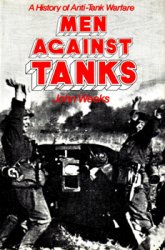As the election of 1804 approached, the West and South were solidly for Jefferson, and the North was rapidly succumbing to his charm. The addition of new western states would soon further reduce New England’s power in national affairs. So complete did the Republican triumph seem that a handful of diehard Federalists in New England began to think of secession. Led by former secretary of state Timothy Pickering, a sour, implacable conservative, a group known as the Essex Junto organized in 1804 a scheme to break away from the Union and establish a “northern confederacy.”
Even within the dwindling Federalist ranks the junto had little support. Nevertheless, Pickering and his friends pushed ahead, drafting a plan whereby, having captured political control of New York, they would take the entire Northeast out of the Union. Since they could not begin to win New York for anyone in their own ranks, they hit on the idea of supporting Vice President Aaron Burr, who was running against the “regular” Republican candidate for governor of New York. Although Burr did not promise to bring New York into their confederacy if elected, he encouraged them enough to win their backing. The foolishness of the plot was revealed in the April elections: Burr was overwhelmed by the regular Republican. The junto’s scheme collapsed.
The incident, however, had a tragic aftermath. Hamilton had campaigned against Burr, whom he considered “an embryo Caesar.” When he continued after the election to cast aspersions on Burr’s character (not a very difficult assignment, since Burr, despite being a grandson of the preacher Jonathan Edwards, frequently violated both the political and sexual mores of the day), Burr challenged him to a duel. It was well known that Hamilton opposed dueling in principle, his own son having been slain in such an encounter, and he certainly had no need to prove his courage. But he

The "Flat Head” (Chinook) Indians acquired their name through shaping in infancy, as shown in a diagram from the Lewis and Clark journals. More remarkable to the explorers than the shape of the Indians' heads was the tribeswomen's open sexuality. "The young females are fond of the attention of our men and appear to meet the sincere approbation of their friends and connections for thus obtaining their favors,” Captain Clark confided in his diary.
Believed that his honor was at stake. The two met with pistols on July 11, 1804, at Weehawken, New Jersey, across the Hudson from New York City. Hamilton made no effort to hit the challenger, but Burr took careful aim. Hamilton fell, wounded; he died the next day. Thus a great, if enigmatic, man was cut off in his prime. His work, in a sense, had been completed, and his philosophy of government was being everywhere rejected, yet the nation’s loss was large.




 World History
World History









